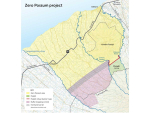Chief executive of Overseer, Caroline Read responds to negative claims by Taranaki Regional Council.
OPINION: Taranaki Regional Council’s claims that OverseerFM is unfit for use as a regulatory tool and “highly inaccurate” is misleading and reinforces wider misunderstandings and myths about what the tool is designed to do
Read: Government’s proposed water reforms blasted’
It also undermines the valuable role OverseerFM plays in regulation as a farm environment planning tool that can be used by farmers and councils to improve freshwater quality.
However, let’s be clear about OverseerFM’s purpose, as this is where much of the confusion lies.
OverseerFM is a nutrient budgeting model and not a real-time nitrogen loss calculator. As such, it’s not designed to be used to deliver an absolute pass/fail against an absolute value.
OverseerFM exists to help address the issue that it is simply impractical to ‘measure’ diffuse nutrient losses from individual farms. Overseer’s model simulates complex biophysical processes to ‘predict’ annualised nutrient losses from a farm, based on the farm management approach.
This means that the effect of different management approaches in specific locations can be compared.
It also allows farmers to monitor nutrient flow trends over time, assess how efficiently their farm systems use the available nutrients and how changes in farm practices impact that.
The software enables quantification of progress, showing farmers how their N, P or GHG emissions are trending over time. It visualises in what parts of the farm they might be losing more nutrients, therefore it adds significant value as a tool for farm planning.
OverseerFM allows regional councils to judge farmers on the impact of their farm management choices, instead of telling them what to do. When used appropriately by councils, OverseerFM has a powerful role to play in supporting the environmental outcomes sought through regulation.
Claims of inaccuracy are misleading and often reflect concerns that Overseer isn’t providing the sort of information being sought, rather than the modelling not working.
This can come from assessment against measured data without sufficient context to understand differences in results. It can also arise from concerns about the importance of things not being captured in the model, or a confusion with modelling uncertainty, which is inherent in the use of all models.
OverseerFM modelling is calibrated against measured data where it’s available and extrapolation is used to enable analysis of relative estimates across New Zealand.
The modelling is reviewed and evaluated as it is developed, and where possible, it is based on science published in peer reviewed journals.
Of course, there are always improvements to be made as science thinking develops and more data becomes available and we recognise continuous improvement is required.
It is time to see OverseerFM for what it is – an enabling tool that allows New Zealand to take an effects based approach to water quality regulation rather than blanket input controls to be placed on farmers.
Most importantly, it needs to be seen as a tool supporting farmers to make the right changes on their own farm to achieve the best environmental outcome.
• Dr Caroline Read is chief executive of Overseer Ltd



















